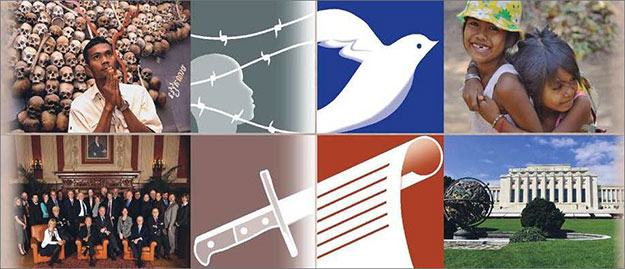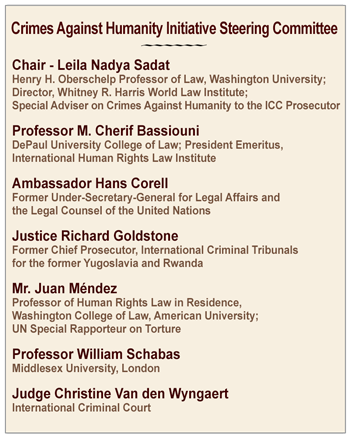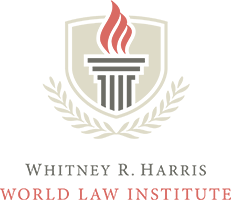The work of the Crimes Against Humanity Initiative, launched by Professor Leila Sadat, the Henry H. Oberschelp Professor at Washington University School of Law, achieved an important milestone when the United Nations International Law Commission voted on July 18, 2014 to add the drafting of a treaty on crimes against humanity to its active agenda.
The development follows the convening of a conference by the Initiative bringing together international experts and the members of the Commission in May, 2014. Organized by the Whitney R. Harris World Law Institute, the conference resulted in the publication of a report, titled Fulfilling the Dictates of Public Conscience: Moving Forward with a Convention on Crimes Against Humanity, on July 17, 2014.

Sadat began the Initiative in 2008 to study the need for and to draft an international treaty aimed at the prevention and punishment of crimes against humanity. She also chairs the seven-member Steering Committee of distinguished international experts which oversees the Initiative’s work. A global convention covering crimes against humanity – which were prosecuted at Nuremberg but never enshrined in a comprehensive international convention – is a key missing piece in the current framework of international law.
Since its launch in 2008, the Initiative has worked with more than 300 international scholars, practitioners, and jurists to develop and promote the world’s first model convention on crimes against humanity. It was published by Cambridge University Press in English, French, and Spanish in Forging a Convention for Crimes Against Humanity. Known as the Proposed International Convention on the Punishment and Prevention of Crimes Against Humanity, the model treaty, which was prepared under the leadership of Steering Committee member and Distinguished Research Professor of Law at DePaul University College of Law M. Cherif Bassiouni, has since been translated into Arabic, Chinese, German, and Russian.

Members of the Initiative’s Steering Committee are delighted with the ILC’s decision to move forward on the topic. “This is a very important step” notes William Schabas, Professor of International Law at Middlesex University, London. “The ILC is completing a task that began more than 70 years ago and will be in a position to push this forward right to the heart of the UN, where it can be adopted and enter into force.”
This decision at the ILC would not have been possible without the efforts of Sean D. Murphy, ILC Memberand the Patricia Roberts Harris Research Professor of Law at The George Washington University Law School, who has now been appointed Special Rapporteur.
“It is hoped that the work of the ILC on this topic will only add to the growing conviction that a comprehensive treaty on crimes against humanity is both urgently required and eminently feasible,” Sadat says.
For more information, and to read the text of both the Fulfilling the Dictates of Public Conscience Report the Proposed International Convention on the Prevention and Punishment of Crimes Against Humanity, please visit http://sites.law.wustl.edu/WashULaw/crimesagainsthumanity/.
The Crimes Against Humanity Initiative was made possible by generous grants from alumnus Steven Cash Nickerson, JD ’85, MBA ’93, the U.S. Institute of Peace, and Humanity United.
